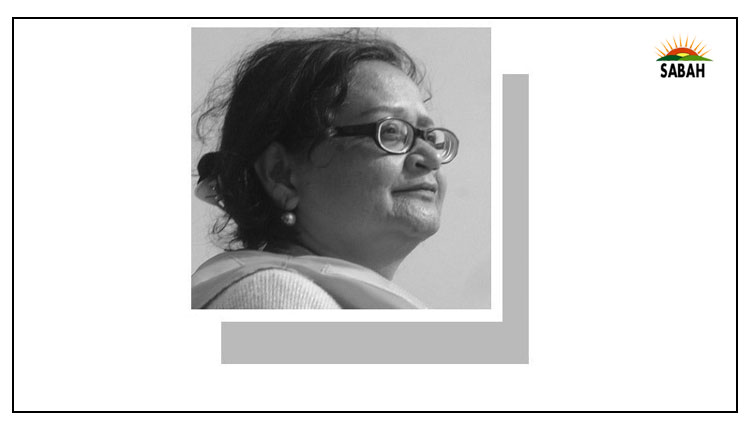A potential game changer….Zenat Hisam
WHILE the global textile and apparel industry is in the process of moving into total digital transformation, Pakistani industry is struggling with basic workplace safety issues. So how can the Pakistan Accord on Health and Safety in the Textile and Garment Industry be a game changer? Precisely because a sound infrastructure is the edifice the industry any industry, especially a labour-intensive industry is built upon. If the entire industry endorses, owns and implements the Accord, which is to be launched in January 2023, it can trigger a process of change for the better.
The Pakistan Accord, a three-year programme, primarily aims to make the factory a safe place for workers through factory inspections, safety improvements and remediations. It has been devised by 185 global brands and retailers in consultation with global trade union federations, UNI Global Union and IndustriALL. The Accord has been put in place by the 2021 International Accord for Health and Safety in the Textile and Garment Industry which succeeded the 2013 and 2018 Accord on Fire and Building Safety in Bangladesh. The Bangladesh accord, which led to improved infrastructure, is cited by analysts as one of the key factors facilitating the competitive advantages of the Bangladeshi garments industry in the last decade, aside from enabling government policies, supporting industries, quality, labour welfare and productivity. Bangladesh is recognised as the second-largest apparel exporting country in the world.
The Pakistan Accord will be a legally binding agreement between the signatory factories in Sindh and Punjab and the brands that will chip in money. Factories will also contribute on a sliding scale. Governance structure will be set up by the steering committee of the International Accord in consultation with local stakeholders. Within a stipulated timeframe, and through a consultative process, the committee will be replaced by a national governance body with representation from the government(s), the factories, employers associations and other actors.
In Bangladesh, the in-country operations of the accord had transitioned in June 2020 to the RMG Sustainability Council (RSC) with representation from the garment and knitwear manufacturers associations in Bangladesh (BGMEA, BKMEA). Since then, the factory inspections, remediation and workplace programmes are being implemented smoothly through the RSC. In Pakistan, a similar mechanism will be established with key representations from the employers associations and federations.
The inspections will monitor and address identified fire, electrical, structural and boiler hazards, which, unfortunately, occur frequently in industrial workplaces. Remediation processes will be supported by the inspection team. Factories safety committees members will be trained, workers safety awareness programme and a complaints mechanism will be put in place.
This Accord is coming to Pakistan after a year-long feasibility study through surveys, extensive research and local stakeholder consultations. Pakistan was given priority because of its importance as a garment and textile-sourcing country. It will cover between 500 to 700 factories supplying to 110 international brands. The International Accord team members have visited Pakistan several times and consulted the relevant federal, provincial ministries and labour departments, employers associations, the Fire Protection Association of Pakistan, NED University, UET Lahore, NESPak and other stakeholders. A pilot assessment of seven factories was conducted, along with a technical capacity assessment.
Though the textile and apparel industry has made significant progress, several issues hinder Pakistan from gaining comparative advantages. A 2019 study identified lack of investment, insufficient infrastructure, lack of timely modernisation of machinery, absence of research and development, inadequate quality standards, dependency on cotton (hence no value-addition), and textile machinery importation as structural weaknesses that have persisted over the decades. The opportunity of building through the basics infrastructure improvements thus augurs well at this juncture. Considering the lack of the latest IT infrastructure monitoring capabilities and tools to map and monitor factory infrastructure and pinpoint system anomalies before these result in mechanical, electrical and plumbing failures, the Accord will provide an excellent opportunity to acquire and use IT tools for monitoring.
The Accord with its focus on inspections will also have a positive impact on the continuity of the GSP-Plus status which is to be reviewed by the EU for the fourth time in December 2023. In the previous reviews, the EU has raised concerns over safety and health issues and the labour inspection system. The EUs expanded list of conditions for compliance for the period of 2024-2034 includes labour rights conventions on labour inspections and tripartite dialogue. With a share of 68 per cent of the total export to the EU, the textile and apparel industry is the largest beneficiary of the GSP-Plus status accorded to Pakistan. The Accord will improve compliance on labour inspection and help the industry grow further.
In the post-Covid-19 era, global players are increasingly taking up the agenda of environmental, social and corporate governance. The European Commission recently adopted rules on corporate sustainability due diligence for global value chains making it incumbent on the companies to integrate due diligence into policies which means more effective protection of human rights included in international conventions. For example, workers must have access to safe and healthy working conditions. One of the key aspects of the Accord is transparency in corporate governance and respect of labour rights.
The industrys family-run business model needs to modernise in this time of unprecedented IT infrastructure modernisation and digital transformation. Our model is inward-looking, fearful of making investments in technology, harbours a traditional distrust of labour and is run by aging patriarchs. There is a silver-lining: the second and third generation of industrialists the Millennials and Gen Zs equipped with higher education, exposed to high-tech and modern business models, are different and have the potential to go for rapid change. An Accord team member shared with this writer and a couple of mediapersons in a Zoom meeting that the team was very well-received and accorded full cooperation by the industry. There is no doubt that the Pakistan Accord presents a win-win situation.
Courtesy Dawn











